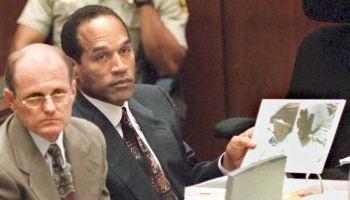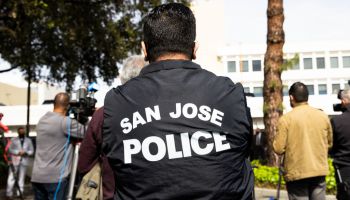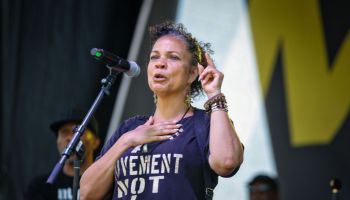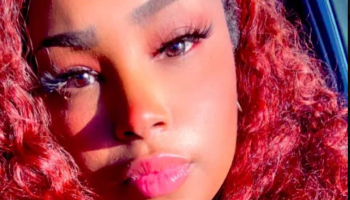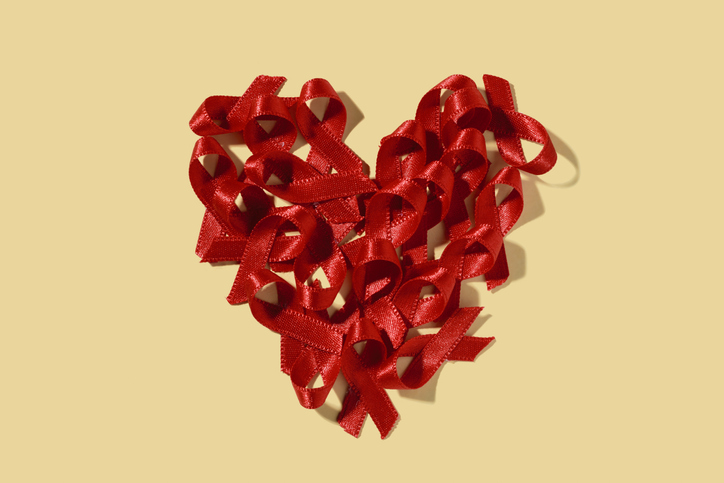
Source: nito100 / Getty
The HIV/AIDS epidemic has been one of the most pressing global health crises of our time. Scientists have made significant strides in developing antiretroviral drugs that can help to stop the transmission of HIV and mitigate symptoms for individuals living with the virus. Currently, there is no cure for patients infected with HIV.
According to the Centers for Disease Control and Prevention (CDC), HIV, which stands for the human immunodeficiency virus, is an infection that attacks healthy cells within the body’s immune system, destroying the immune system’s ability to fight infection, according to HIV.gov.
MORE: World AIDS Day: Remembering Black Celebrities Who Have Died From The Epidemic
If left untreated, HIV can lead to AIDS (acquired immunodeficiency syndrome), which occurs when the body’s immune system becomes damaged because of the virus.
How does HIV/AIDS affect African American populations?
African American people in the United States are disproportionately impacted by HIV. According to the CDC, in 2019, Black people made up 40% of people living with HIV in the US despite accounting for 13% of the population. Between 2015 to 2019, HIV infections declined by 8% overall, but cases continued to remain stable among Black people. Black men accounted for three-quarters of new HIV infections in 2019, while Black women accounted for 91% of heterosexual HIV cases— the highest of any other race and ethnicity in the United States, the CDC noted.
MORE: Don’t Believe The Hype: Seven HIV/AIDS Myths That Have Been Debunked
Economic disparities, limited access to healthcare and higher rates of poverty can impact access to HIV prevention, testing, and treatment services. Stigmas associated with HIV can prevent individuals from seeking testing, treatment, or disclosing their status due to fear of discrimination.
In the pursuit of eradicating the disease, the role of awareness cannot be overstated. It serves as the cornerstone of prevention, eradication and support for those affected. Throughout the decades, numerous individuals have stepped forward as advocates, educators and champions for those affected by the virus. Among these remarkable figures, Black activists have played a pivotal role in raising awareness, fighting stigma and pushing for greater access to treatment and support.
MORE: World AIDS Day Reminds Us To Press Forward In The Fight To End The HIV/AIDS Epidemic
It’s been more than 40 years since the first cases of what became known as AIDS was officially reported. Over these last few decades, much work has been done in advocacy, healthcare innovation, and education to help more people prevent and treat an HIV+ diagnosis and live a better quality of life if they are HIV+. Despite those promising inroads, the stigma associated with being HIV+ impacts those affected. The belief that only certain groups of people can get infected, being morally judged for taking steps to prevent HIV transmission, and other stigmas create mental and emotional issues for those living with HIV.
Keep reading and scroll down to find a list of influential Black HIV/AIDS activists who have made a lasting impact.
The post Influential Black HIV/AIDS Activists You Need To Know appeared first on NewsOne.
Influential Black HIV/AIDS Activists You Need To Know was originally published on newsone.com
1. Rae Lewis-Thornton
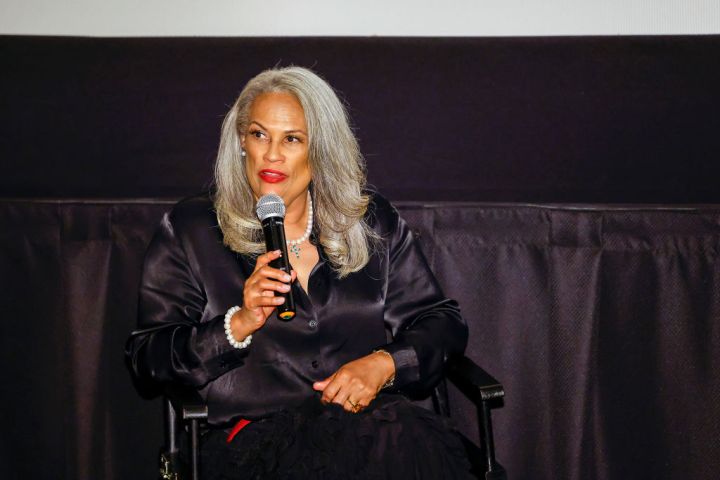 Source:Getty
Source:Getty
Rae Lewis-Thornton is an Emmy Award-winning AIDS activist who has been living with HIV for 36 years and AIDS for 26. Through public speaking engagements, writing, and media appearances, she advocates for HIV/AIDS education, particularly addressing the stigma and discrimination faced by those living with the virus. Thornton rose to fame after she opened up to Essence Magazine about living with the condition in 1994.
On World Aids Day Dec. 1, the author and public speaker took to Facebook to reflect on her journey living with the virus.
“Over 35 years ago, I was diagnosed with HIV and only found out because I donated blood. It was a scary time to be diagnosed with HIV, and I had no idea what the future would look like for me, or if I even had a future,” Thornton penned. “But I was proactive about my health, and as soon as HIV medicines became available, I started and stayed on HIV treatment as prescribed. Today, I’m grateful to be undetectable.”
2. Deon Haywood
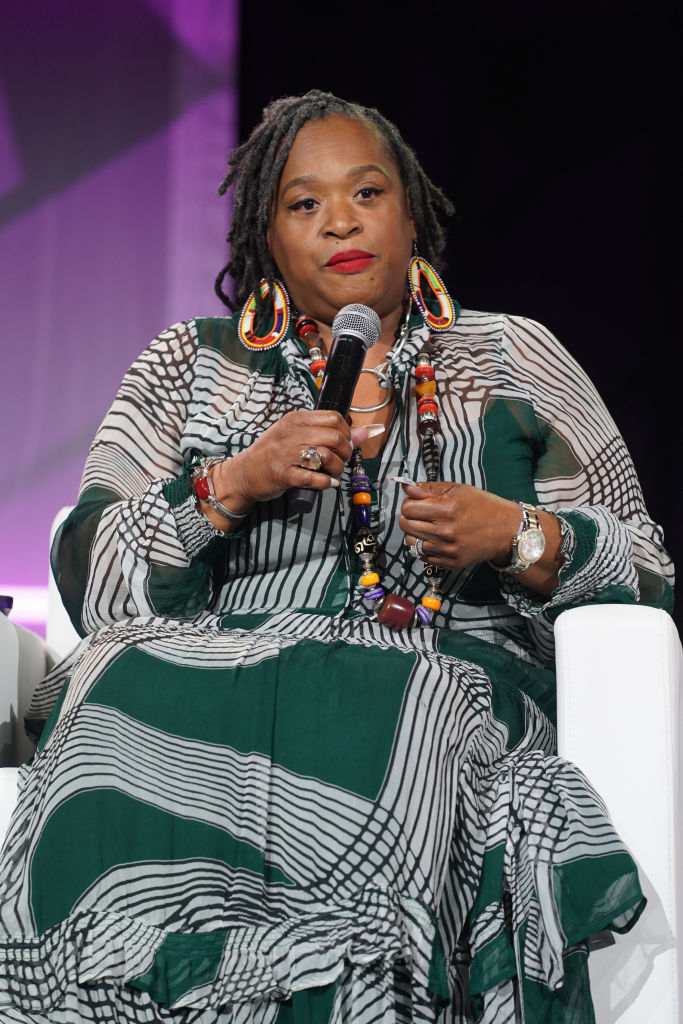 Source:Getty
Source:Getty
Deon Haywood, the Executive Director of Women With A Vision, works tirelessly to address the intersection of HIV/AIDS, reproductive justice and social change. Her organization focuses on supporting marginalized communities, including Black women and LGBTQ+ individuals, affected by the epidemic.
3. Marvelyn Brown
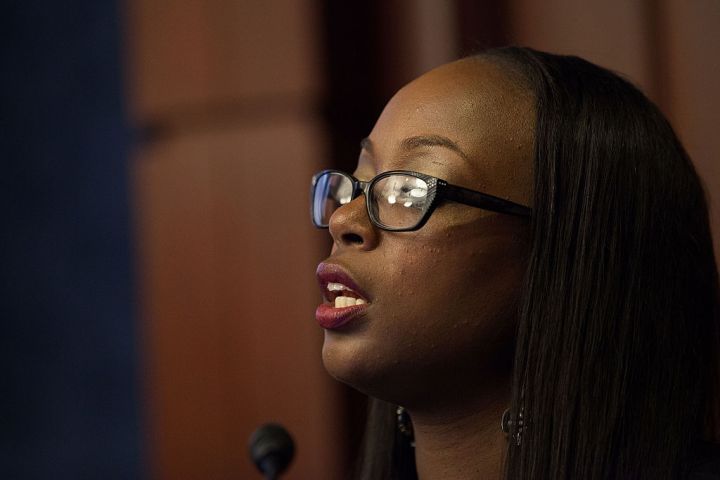 Source:Getty
Source:Getty
Marvelyn Brown, a native of Tennessee, became HIV-positive at the age of 19. Through her humanitarian work and advocacy, Brown has helped to speak out against the struggles of those living with the virus.
In 2007, she earned an Emmy Award for Outstanding National PSA. She was also named one of the 25 “HEROES” in the HIV/AIDS epidemic by BET’s Rap It Up campaign, according to her website. The public speaker and author was also inducted into The Black AIDS Institute in 2010.
4. Alicia Diggs
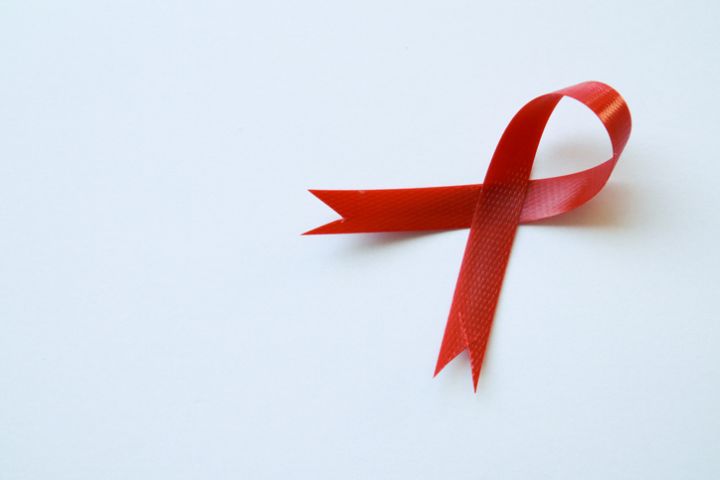 Source:Getty
Source:Getty
HIV consultant and humanitarian Alicia Diggs is a fierce advocate for people living with HIV. Throughout her dedicated work, she aims to educate communities on STD/STI prevention and provides resources on how to live a healthy lifestyle living with the virus. “I have a passion to assist black women living with HIV in healing through traumas that have prevented them from flourishing in their lives,” the activist notes on her LinkedIn page.
In 2021, Diggs was named one of Plus+ Magazine’s Amazing People Of The Year living with HIV.
“Through my trials and tribulations, I made a decision to fight and stand strong as a woman living with HIV so that I can help my fellow brothers and sisters fight and stand strong,” the star, who serves as the manager for the Office of Community Engagement for AIDS Research at UNC-Chapel Hill said in a statement.
“It has been important to me to help build coalitions and solidarity within and amongst our diverse communities to that we can dispel the myths, rid the stigma, and educate others about HIV.”
5. David Malebranche
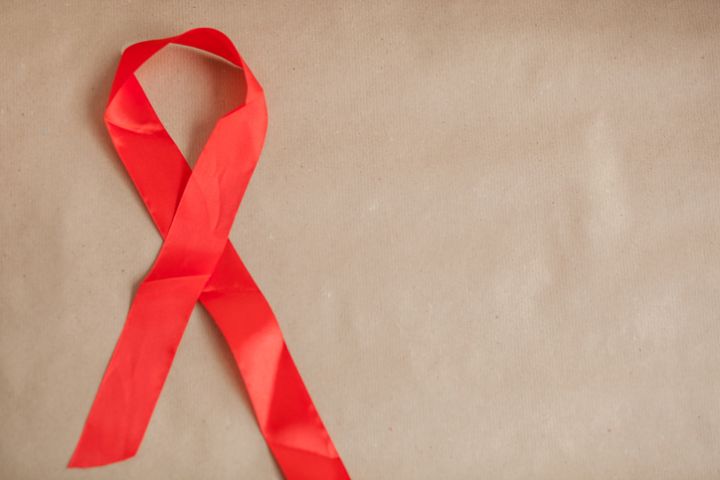 Source:Getty
Source:Getty
David Malebranche, a medicine physician, writer and advocate, has focused his work on addressing health disparities in the Black LGBTQ+ community, including HIV/AIDS. His research and activism emphasize the importance of culturally competent care and comprehensive support services.
6. Dr. Keith Green
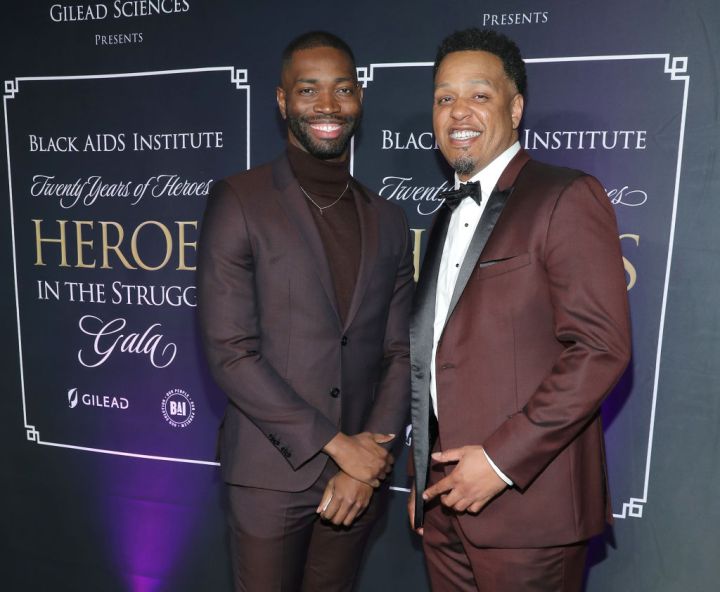 Source:Getty
Source:Getty
Dr. Keith Green is a founding member of the Chicago Black Gay Men’s Caucus and helped to spread awareness about HIV through his advocacy with the AIDS Foundation of Chicago. A native of Chicago’s Southside, Dr. Green was diagnosed with the virus at 17. He has dedicated his life to creating prevention resources aimed to at those living with the virus.
According to HivPlusMag, Green is reportedly “the first black gay man in the world to become directly involved in the management and implementation of a study focused on the biomedical HIV prevention strategy.”
7. Phil Wilson
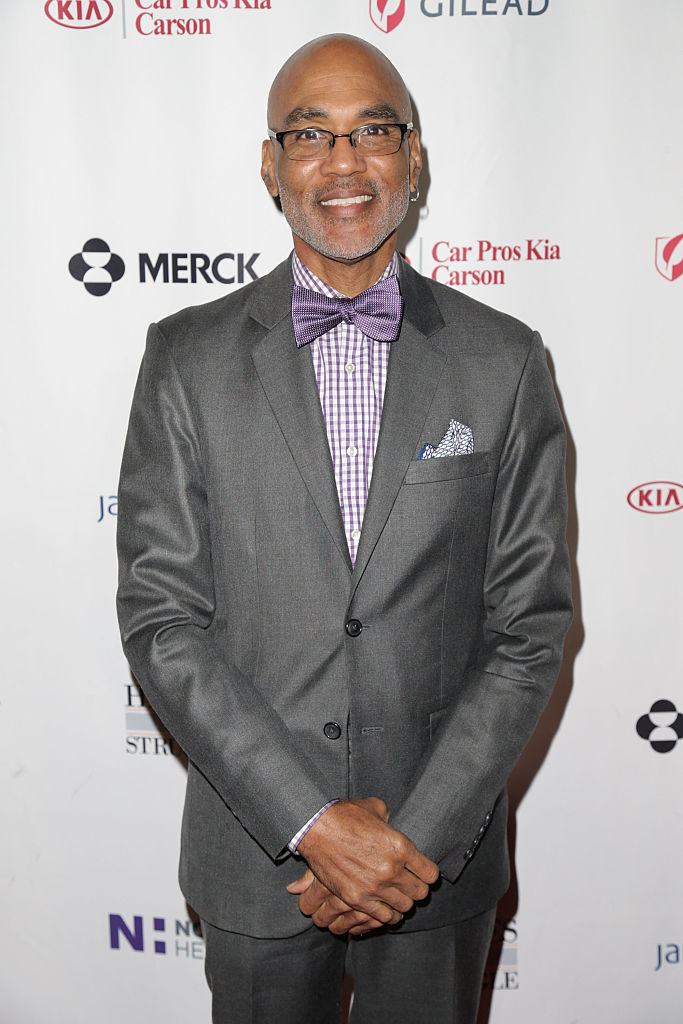 Source:Getty
Source:Getty
Phil Wilson is the former Executive Director of the Black AIDS Institute. Founded by Wilson in 1999, the non-profit has become a leader in the fight to educate people about the HIV/AIDS epidemic. The organization works to spread awareness and prevention education to African American communities in the US.
Wilson has been living with HIV for most of his life, the activist revealed in an op-ed for NBC News in 2016.
“I never expected to make it to 30, much less 60. I am of a generation that lost scores of friends and loved ones through this disease, and I was given a death sentence on more than one occasion,” he penned. “Eventually I came to understand that the only way to save my life and the lives of those I love was to fight—to fight the disease, to fight all the “isms”, to fight the stigma, to fight an uncaring government, to fight an ignorant public, to fight an inadequate health care system, and to fight my own fears of inadequacy.”
In 2018, he retired from the Black AIDS Institute.

